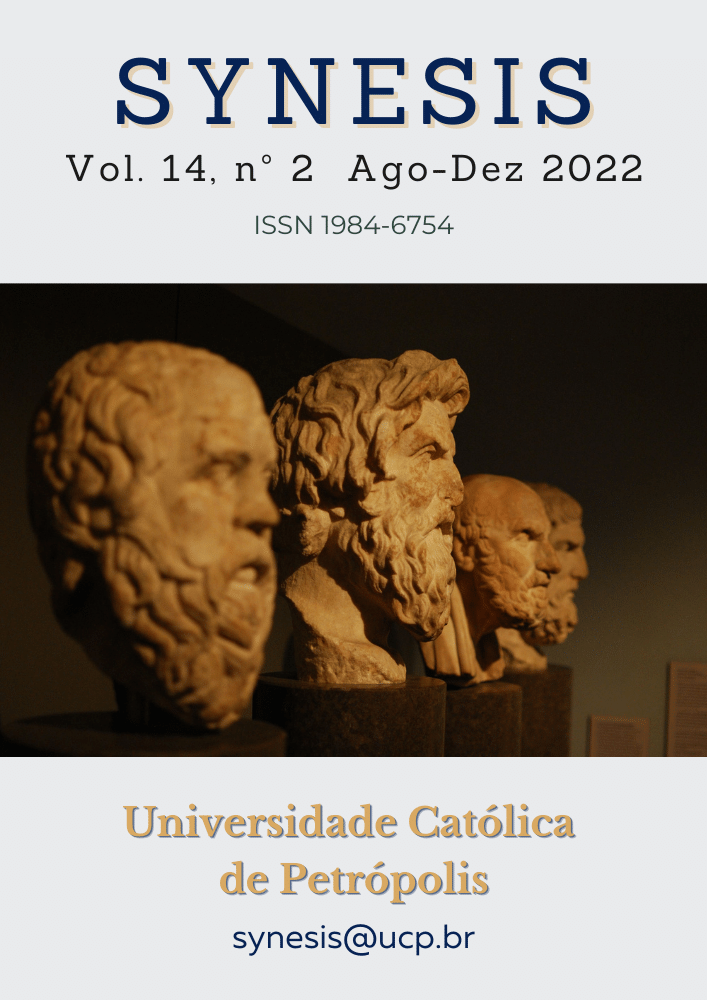Resumo
O Nobre Alcorão foi revelado em sete Ahruf (dialetos) de recitações, que contém os sete modos padrão de leitura dos dias atuais. No entanto, há uma escassez de pesquisas sobre as conotações dos diferentes modos de recitações do Alcorão. Como tal, alguns gramáticos tendem a criticar certas recitações, talvez devido a seu conhecimento inadequado da exegese do Alcorão. Por esta razão, há uma necessidade urgente de conduzir uma investigação sistemática para abordar a questão da má interpretação dos versos do Alcorão com base nos modos de recitações, especialmente Hafs e outras formas de recitações. Portanto, este estudo visa abordar a questão das variações entre duas modalidades de recitações do Alcorão, Hafs e Nafi', no que diz respeito à adição e dedução em dois capítulos selecionados, Al-Fatihah (A Abertura) e Al-Baqarah (A Vaca) e suas conotações. O estudo adota uma abordagem indutiva-analítica na qual os versos do Alcorão dos capítulos selecionados são analisados para se chegar a resultados válidos. Os resultados revelam que as diferenças nos modos de recitações de Hafs e Nafi não sugerem contradição, mas aumentam nossa compreensão dos significados dos versos do Alcorão com múltiplas expressões. As expressões cumprem o requisito básico para a validade dos modos regulares de recitações. Este conhecimento ajuda em exegeses dentro dos versos do Alcorão e revela a inimitabilidade do Nobre Alcorão. Prevê-se que este estudo possa avançar nossa compreensão de como a variedade de recitações pode ajudar a formar interpretações precisas dos versos do Alcorão.
Referências
The Noble Quran
Al-Abyari, I. I. (1405). Al-Mausu’ah al-Qur'aniyyah (Quranic Encyclopedia). Beirut: Mu’assah al-Sijil al-Arab.
Al-Ahwazi, A. A. I. Y. (2002). Al-Wajeez fi Sharhi al-Qira’at al-Thamaniyah li Amsar al-Khamsah (A handbook for the explanation of the eight recitations by five Amsar reciters). Beirut: Daar al-Gharb al-Islami.
Al-Bukhari, M. I. I. A. (1987). Al-Jami’ Al-Musnad Al-Sahih Al-Mukhtasar min Umur Rasul al-Allah Sallahu Alaihi Wa Sallam wa Sunanihi wa Ayyamihi (A collection of authentic and solid summary from the affairs, tradition and days of the Prophet peace be upon him). Beirut: Dar Ibn Kathir
ِAl-Maqdisi, A. M. M. A. (2009). Fath al-Rahman fi Tafseer al-Quran (The opening of al-Rahman in the exegeses of the Quran). Beirut: Dar Al-Nawader.
Al-Nayrabani, A. (2006). Al-Jawanib al-Sawtiyyah fi Kutub al-Ihtijaj lil Qira’at. (Pronunciation aspect in the books of proof for recitations). Dimashq: Dar al-Ghawthani li al-Dirasaat al-Quraniyyah.
Al-Samira’I, I. S. S (2005). Ikhtilaf fi al-Qira’at al-Qur'aniyyah wa Athrihi fi al-Ittisa’ al-Ma’ani: Dirasat wa Abhath fi al-Quran wa U’lumihi (Difference in Quranic recitations and its influence on the connotations. Studies and research in Quran and its sciences). Journal of Tikrit University for the Humanities, 12(5), 59-90.
Al-Suyudi, A. A. J. (1974). Al-Itqan fi Ulum al-Quran (proficiency in Quranic sciences). Al-Qahirah: Al-Hai’ah al-Misriyyah Al-Ammah Lil-Kitab.
Al-Thulaia, H. A. A. (2000). Qurra al-Sahabah al-Ladhina Talaqqau an al-Nabiy Sallallahu Alaihi Wa Sallam Wa Wasalana Isnaduhum (Reciters among the companions who reported from the Prophet peace be upon him and their chains of transmission has reached us). Hikmah: International Journal of Islamic Studies and Human Sciences, 3(4), 271-297.
Gasson, S. (2004). Rigor in grounded theory research: An interpretive perspective on generating theory from qualitative field studies. In The handbook of information systems research (pp. 79-102). IGI Global.
Ibn Al-Jauzi, J. A. M. (1422). Zaad al-Masir fi I’lm al-Tafsir (A great direction in the science of exegesis). Beirut: Daar al-Kutub al-Arabi.
Ibn Al-Jazari, S. M. M. Y. (1380). Ghayah al-Nihayah fi Tabaqat al-Qurra (The ultimate end in the categories of reciters). Beirut: Dar Al-Kutub Al-Ilmiyah
Ibn Khalawaih, A. M. A. (1401). Al-Hujjah fi al-Qira’at al-Sab’a (A proof in the seven modes of recitations). Beirut: Dar Al-Shuruq.
Ibn Zanjalah, A. M. A (n.d.). Hujjah al-Qira’at (A proof for the modes of recitations). El-Madina El-Monawara, Al Munirah: Dar El Resala El Islameya.
Ismail, M. B. (1999). Dirasat fi Ulum al-Quran (Studies in the sciences of the Qur'an). Amman: Dar Al-Manar.
Muhammad, A. H., & Hamzah, A. (2019). Taujeeh al-Qira’at, Ta’rifuhu. Asma’uhu, Musdalahatunu, Masadiruhu: Dirasah Istiqra'iyah Tahliliyyah (meaning of Quranic recitations, definitions, names, terminologies, and sources: An inductive analytical study). Journal of the Faculty of Fundamentals of Religion and Da’wah, Al-Azhar University, 31(3), 2199-2234
Nabeel, M. (2021). Qira’ah Jadidah li Asbab al-Da’an fi Qira’at al-Qura’niyya (A new reading of the reasons for the criticism of Quranic recitations). Almi’yaar Journal, 25(62), 13-30.
Thomas, D. R. (2006). A general inductive approach for analyzing qualitative evaluation data. American Journal of Evaluation, 27(2), 237-246.

Este trabalho está licenciado sob uma licença Creative Commons Attribution-NonCommercial-NoDerivatives 4.0 International License.
Copyright (c) 2022 Synesis (ISSN 1984-6754)

